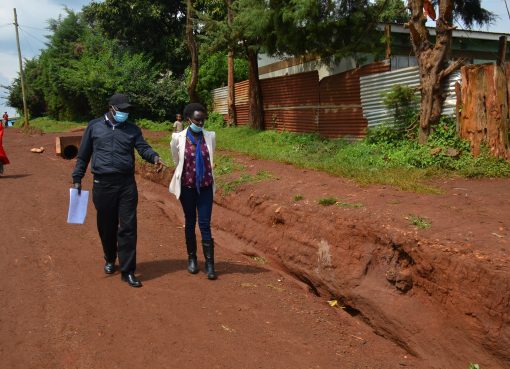Mastercard has pledged $250 million and committed to connect 50 million micro, small and medium size businesses to the digital economy by 2025 using its technology, network, expertise and resources in support of the company’s goal of building a more sustainable and inclusive digital economy.
East Africa Mastercard Country Manager Shehryar Ali said that the company works closely with various stakeholders including the government and banking institutions to create opportunities for SMEs, which represent 98 per cent of all businesses in Kenya.
Shehryar noted that for many small businesses, reducing their dependence on cash through digital payments acceptance, has played a major factor in being able to get paid and maintain revenues.
“SMEs have been among those hit hardest by the pandemic, and Mastercard is dedicated to continuing support to this sector, especially in terms of connections to the digital payments acceptance tools, insights and cybersecure tech solutions they need,” said Shehryar.
Shehryar stated that although challenges remain, the SME Confidence Index provides a helpful overview for all stakeholders on what can be done to grow the contribution of this sector in Kenya.
Private sector partnerships and government-led initiatives were identified as having the biggest potential to positively impact SMEs and the wider Kenyan market 61 per cent and 40 per cent respectively.
She added that as SMEs begin their path to recovery in a post-Covid world, their key concern is access to funding in order to maintain and grow their business.
“This can be achieved by leveraging the digital economy to drive greater inclusion by easing barriers to financial services. At Mastercard, we are committed to connecting businesses to the digital economy by working with partners to provide digital solutions and technology that will enable them to improve their operational efficiency, diversify their revenue and grow their businesses,” added Shehryar.
Mastercard’s Economic Outlook 2021 estimated that 20-30 per cent of the Covid-19 related surge in e-commerce would be a permanent trend in share of overall retail spending globally.
Furthermore, recent studies from Mastercard showed that 79 per cent of Kenyan consumers are shopping more online than they did since the start of the pandemic and 99 per cent of Kenyan shoppers would consider making a purchase with an emerging payment technology over the next year.
A research has revealed that digitization of Small Medium Enterprises (SMEs) operations in the Country is key even as they position themselves for multi-dimensional economic recovery post Covid-19.
According to the study by Mastercard, 72 per cent of the SMEs have identified acceptance of digital payments, better data and insights, and digitizing business operations as the top three drivers for growth.
The Mastercard study recommended that SMEs must be encouraged to have all the support they need to go digital and grow digital. The study noted that 73 per cent of small and medium sized businesses in the country have identified easier access to funding.
The inaugural Mastercard Middle East and Africa (MEA) SME Confidence Index further highlights opportunities that arise from both internal transformation as well as industry regulations and trends.
“After facing unprecedented changes in the wake of the COVID-19 pandemic, Small and Medium Enterprise (SME) confidence in Kenya is on the rise,” read the findings in part.
By Alice Gworo





